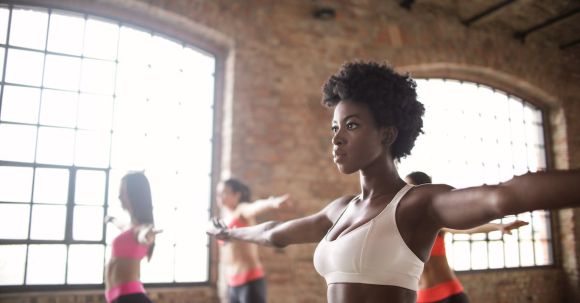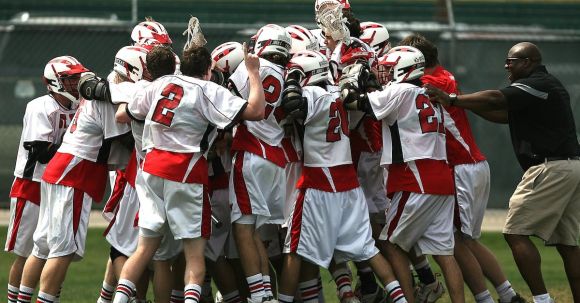When it comes to excelling in sports, it's not just about having the right skills and techniques. It's also about having a strong and powerful body that can handle the demands of the game. That's where sports-specific exercises come in. By tailoring your training to the specific demands of your sport, you can enhance your performance and take your game to the next level. In this article, we will delve into the importance of sports-specific exercises and explore some examples that can power up your play.
Sports-specific training
Mastering a sport requires more than just physical fitness and strength. It involves honing your technique and skills to perform at your best. Sports-specific training is the key to achieving peak performance in any sport. By focusing on the specific demands and movements required for your chosen sport, you can fine-tune your technique and take your performance to the next level. In this article, we will explore the importance of sports-specific training and how you can incorporate it into your training routine.
Understanding the Demands of Your Sport
Every sport has its own set of physical demands and specific movements. Whether it's running, jumping, throwing, or swinging, understanding the specific skills and movements required for your sport is essential. By analyzing the movements and demands of your sport, you can identify the areas that need improvement and tailor your training accordingly.Improving Technique
One of the main goals of sports-specific training is to improve technique. Technique refers to the specific way you perform the movements and skills required for your sport. By focusing on proper form and technique, you can optimize your performance and reduce the risk of injury. For example, if you're a tennis player, sports-specific training can help you improve your serve technique, footwork, and overall shot accuracy.Targeting Muscle Groups
Sports-specific training allows you to target the specific muscle groups used in your sport. By strengthening these muscles, you can enhance your performance and prevent injuries. For instance, a basketball player may focus on exercises that target the leg muscles used for jumping, such as squats and plyometric drills. By strengthening these muscles, the player can improve their vertical jump and overall agility on the court.Balance and Coordination
Sports-specific training also helps improve balance and coordination, which are crucial for success in any sport. By incorporating exercises that challenge your balance and coordination, such as single-leg exercises or agility ladder drills, you can improve your body's ability to move efficiently and react quickly during game situations.Speed and Agility
Speed and agility are essential for many sports, such as soccer, basketball, and track and field. Sports-specific training can help improve your speed and agility by incorporating drills that mimic the movements required in your sport. For example, a soccer player may focus on exercises that improve their acceleration, change of direction, and sprinting speed.Mental Preparation
Sports-specific training goes beyond physical preparation. It also encompasses mental preparation. Mental toughness, focus, and concentration are crucial for success in any sport. By incorporating mental training techniques, such as visualization and mindfulness exercises, you can enhance your mental resilience and ability to perform under pressure.Incorporating Sports-Specific Training into Your Routine
To incorporate sports-specific training into your routine, start by identifying the specific skills and movements required for your sport. Once you have a clear understanding of these requirements, you can design a training program that targets those areas. This may involve a combination of strength training, agility drills, balance exercises, and sport-specific drills. It's important to gradually progress your training intensity and complexity to avoid overtraining and injuries. Incorporate rest days into your training schedule to allow your body to recover and adapt to the demands of your sport.Conclusion: Take Your Performance to the Next Level
Sports-specific training is the key to taking your performance to the next level. By understanding the demands of your sport, improving technique, targeting muscle groups, enhancing balance and coordination, and focusing on mental preparation, you can fine-tune your technique and optimize your performance. Incorporate sports-specific training into your routine and watch your skills and performance soar.
In the world of sports, athletes are constantly looking for ways to gain a competitive edge and improve their performance. One effective method that has gained popularity in recent years is sports-specific training. This type of training is designed to enhance the specific skills and abilities needed for a particular sport, taking athletes to the next level of performance. Whether you're a professional athlete or a weekend warrior, sports-specific training can help you reach your full potential.
Enhancing Power and Strength
One of the key benefits of sports-specific training is the ability to enhance power and strength. By focusing on exercises that mimic the movements and demands of your sport, you can develop the specific muscles needed to excel in your game. For example, if you're a basketball player, incorporating exercises that target explosive jumping and quick lateral movements can improve your ability to outmaneuver opponents on the court. By tailoring your training to your sport, you can maximize your power and strength, giving you a significant advantage.Improving Speed and Agility
Speed and agility are crucial components of many sports, and sports-specific training can help you take these skills to the next level. By incorporating drills and exercises that focus on quick movements, change of direction, and acceleration, you can improve your speed and agility on the field or court. For soccer players, this might involve ladder drills to enhance footwork and agility, while for tennis players, it could mean working on explosive lateral movements. By honing your speed and agility through sports-specific training, you can become a faster and more dynamic athlete.Boosting Endurance and Stamina
Endurance and stamina are essential for athletes who participate in sports that require prolonged physical exertion. Sports-specific training can help improve these areas by incorporating exercises that mimic the demands of your sport. For example, if you're a long-distance runner, incorporating interval training and long-distance runs into your training program can help improve your endurance. Similarly, if you're a cyclist, adding high-intensity interval training on the bike can boost your stamina. By focusing on the specific energy systems used in your sport, you can enhance your endurance and stamina, enabling you to perform at your best for longer periods of time.Preventing Injuries
In addition to improving performance, sports-specific training can also help prevent injuries. By targeting the specific muscles and movements used in your sport, you can strengthen these areas and reduce the risk of injury. For example, if you're a volleyball player, incorporating exercises that strengthen the shoulder and core muscles can help prevent common injuries associated with the sport. By addressing any weaknesses or imbalances in your muscle groups, you can reduce the likelihood of injuries and stay in the game for longer.Taking Your Game to the Next Level
Sports-specific training is a game-changer for athletes looking to take their performance to the next level. By tailoring your training to the demands of your sport, you can enhance power, speed, endurance, and prevent injuries. Whether you're a professional athlete or a recreational player, incorporating sports-specific training into your routine can give you a competitive edge and help you reach your full potential. So, lace up your shoes, grab your equipment, and get ready to elevate your game with sports-specific training.
In order to excel in any sport, it is crucial to develop strength and stamina that are specific to the demands of that particular activity. Sports-specific exercises are designed to target the muscles and energy systems that are most utilized in a given sport, thus improving performance and reducing the risk of injury. Whether you are a professional athlete or a recreational enthusiast, incorporating these exercises into your training routine can take your performance to the next level.
Improve Power and Speed with Plyometrics
Plyometric exercises are explosive movements that help improve power and speed. They involve rapid stretching and contracting of muscles, which enhances the body's ability to generate force quickly. For sports such as basketball, soccer, or tennis, plyometric exercises like box jumps, lateral bounds, and medicine ball throws can be highly beneficial. These exercises not only build strength in the lower body but also improve coordination and agility.Enhance Core Stability for Balance and Control
A strong and stable core is essential for maintaining balance and control in sports that require quick changes in direction or body positioning. Exercises that target the core muscles, such as planks, Russian twists, and standing cable rotations, can help improve stability and prevent injuries. By strengthening the core, athletes can generate more power from their hips and transfer it to their limbs, resulting in better performance on the field or court.Build Endurance with Interval Training
Endurance is crucial for sports that involve continuous activity over an extended period of time, such as long-distance running, cycling, or swimming. Interval training is an effective method to improve endurance by alternating between high-intensity and low-intensity exercises. This type of training challenges the cardiovascular system and increases the body's ability to sustain effort for longer durations. Incorporating interval training sessions into your routine can help build stamina and improve overall athletic performance.Target Sport-specific Muscles with Resistance Training
Resistance training is a key component of sports-specific exercises as it helps target and strengthen the muscles that are most used in a particular sport. For example, a soccer player can benefit from exercises that focus on the lower body, such as squats, lunges, and hamstring curls. On the other hand, a swimmer may focus on upper body exercises like pull-ups, shoulder presses, and tricep dips. By tailoring resistance training to the specific demands of your sport, you can optimize muscle development and improve performance.Incorporate Agility Drills for Quickness and Responsiveness
Agility is the ability to change direction quickly and efficiently, which is crucial in sports like basketball, soccer, and tennis. Agility drills, such as ladder drills, cone drills, and shuttle runs, can improve footwork, reaction time, and overall quickness. These exercises challenge the neuromuscular system, improving coordination and proprioception. By incorporating agility drills into your training routine, you can enhance your ability to react swiftly and effectively on the field or court.Conclusion: Take Your Performance to the Next Level
Sports-specific exercises are essential for building strength and stamina that are tailored to the demands of your chosen sport. By incorporating plyometrics, core stability exercises, interval training, resistance training, and agility drills into your training routine, you can optimize your athletic performance and reduce the risk of injury. Remember to consult with a qualified trainer or coach to ensure that you are performing these exercises correctly and safely. With dedication and consistency, you can take your performance to the next level and achieve your goals in your chosen sport.
As athletes, we all strive to reach our maximum potential and perform at our best. One way to achieve this is by incorporating sports-specific exercises into our training regimen. These exercises are designed to enhance the specific skills and movements required for our chosen sport, helping us become more efficient, powerful, and agile. In this article, we will explore the benefits of sports-specific exercises and provide some examples to help you maximize your potential.
Enhanced Performance
Sports-specific exercises are tailored to mimic the movements and demands of a particular sport. By focusing on these specific movements, we can improve our overall performance on the field or court. For example, if you are a basketball player, incorporating exercises that simulate jumping, quick lateral movements, and shooting will help you become more explosive, agile, and accurate in your game. By targeting the exact skills required for your sport, you can maximize your potential and excel in your performance.Improved Strength and Conditioning
In addition to enhancing performance, sports-specific exercises can also improve your strength and conditioning. By targeting the muscles and energy systems used in your sport, you can build the necessary strength and endurance to excel. For instance, if you are a soccer player, exercises that focus on lower body strength, agility, and cardiovascular endurance will help you become more powerful, faster, and able to sustain high-intensity efforts throughout the game. By training specifically for your sport, you can develop the physical attributes needed to excel and outperform your competitors.Reduced Risk of Injury
Another significant benefit of sports-specific exercises is the reduced risk of injury. By training the muscles and movements specific to your sport, you can improve your body's resilience and ability to handle the demands placed on it. For example, if you are a tennis player, incorporating exercises that strengthen your rotator cuff, improve your core stability, and enhance your balance and coordination can help prevent common tennis-related injuries, such as shoulder or knee issues. By addressing these specific areas, you can minimize the risk of injury and stay on top of your game.Examples of Sports-Specific Exercises
Now that we understand the benefits of sports-specific exercises, let's explore some examples that you can incorporate into your training routine: 1. Golf: Practice rotational exercises such as medicine ball twists and cable wood chops to improve your swing power and stability. 2. Swimming: Incorporate exercises like pull-ups, lat pulldowns, and shoulder presses to strengthen your upper body and improve your stroke efficiency. 3. Soccer: Focus on exercises like squats, lunges, and plyometric jumps to develop lower body strength, explosiveness, and agility. 4. Tennis: Perform exercises like lateral lunges, single-leg squats, and medicine ball throws to enhance your lower body stability, core strength, and rotational power. Remember, these are just a few examples, and the exercises you choose should be tailored to your sport and individual needs. Consulting with a sports trainer or coach can help you create a personalized program that maximizes your potential and takes your performance to the next level. In conclusion, sports-specific exercises are a valuable tool for maximizing your potential as an athlete. By targeting the specific skills, movements, and muscles required for your sport, you can enhance your performance, improve your strength and conditioning, and reduce the risk of injury. Incorporate these exercises into your training routine and watch as you reach new heights in your athletic journey.
When it comes to improving your performance in your chosen sport, simply practicing the sport itself may not be enough. Sports-specific exercises can play a crucial role in helping you reach your full potential. These exercises are designed to target the specific muscles and movements used in your sport, helping to improve strength, agility, and overall performance. Whether you're a basketball player looking to improve your vertical jump or a tennis player wanting to enhance your agility on the court, incorporating sports-specific exercises into your training regimen can give you that extra edge.
Increasing Strength and Power
One of the key benefits of sports-specific exercises is their ability to increase strength and power in the muscles used for your sport. For example, if you're a soccer player, exercises that focus on the lower body, such as squats and lunges, can help to improve leg strength and power, allowing you to generate more force when kicking the ball. Similarly, if you're a swimmer, exercises that target the muscles in your upper body, such as shoulder presses and pull-ups, can help to enhance your stroke power and speed in the water. By incorporating these exercises into your training routine, you can build the specific muscles needed for your sport and improve your overall performance.Improving Agility and Coordination
In addition to increasing strength and power, sports-specific exercises can also help to improve agility and coordination. This is particularly important for sports that require quick movements and changes in direction, such as basketball or soccer. Exercises that focus on balance, such as single-leg squats or lateral lunges, can help to improve stability and control, allowing you to move more efficiently on the court or field. Likewise, exercises that require coordination, such as ladder drills or cone drills, can help to improve your ability to quickly change direction and react to the movements of your opponents. By incorporating these exercises into your training routine, you can enhance your agility and coordination, giving you a competitive edge in your sport.Preventing Injuries
In addition to enhancing performance, sports-specific exercises can also play a crucial role in injury prevention. By targeting the specific muscles and movements used in your sport, these exercises can help to strengthen the muscles and improve flexibility, reducing the risk of injury. For example, if you're a runner, exercises that focus on the muscles in your legs and hips, such as calf raises and hip flexor stretches, can help to prevent common running injuries, such as shin splints or IT band syndrome. By incorporating these exercises into your training routine, you can keep your body strong and flexible, reducing the likelihood of injury and allowing you to perform at your best.Incorporating Sports-specific Exercises into Your Training Routine
Now that you understand the benefits of sports-specific exercises, you may be wondering how to incorporate them into your training routine. The key is to identify the specific muscles and movements used in your sport and then choose exercises that target those areas. Consider working with a qualified trainer or coach who can help you develop a customized training program tailored to your sport and goals. Additionally, be sure to warm up properly before each workout and listen to your body, adjusting the intensity and frequency of your exercises as needed. In conclusion, sports-specific exercises can be a game-changer when it comes to enhancing your performance in your chosen sport. By increasing strength and power, improving agility and coordination, and preventing injuries, these exercises can help you reach your full potential and excel in your sport. So, whether you're a basketball player, a tennis player, or a soccer player, don't overlook the importance of incorporating sports-specific exercises into your training routine. Give yourself that extra edge and watch your performance soar.
When it comes to achieving your goals in sports, it's not just about practicing the specific skills needed for your chosen sport. It's also important to incorporate sports-specific workouts into your training routine. These workouts are designed to improve the physical attributes necessary for success in your sport, such as strength, agility, speed, and endurance. By tailoring your workouts to the demands of your sport, you can maximize your performance and take your game to the next level.
Enhancing Strength for Sport
One of the key components of sports-specific workouts is strength training. Different sports require different types of strength, whether it's explosive power for sprinting or upper body strength for swimming. By targeting the specific muscle groups used in your sport, you can build the necessary strength to excel. For example, if you're a soccer player, exercises that focus on leg strength and core stability can help improve your speed and agility on the field.Improving Agility and Speed
Agility and speed are essential in many sports, such as basketball, tennis, and football. Sports-specific workouts can help you develop these attributes through drills and exercises that mimic the movements and actions required in your sport. For instance, ladder drills can improve footwork and quickness, while shuttle runs can enhance acceleration and change of direction. By regularly incorporating these workouts into your training routine, you can become faster, more agile, and more responsive on the field or court.Building Endurance for Performance
Endurance is another crucial factor in sports performance, especially in endurance sports such as long-distance running or cycling. Sports-specific workouts can help you build your endurance by gradually increasing the intensity and duration of your training sessions. For example, if you're a marathon runner, incorporating long distance runs into your training program can help improve your stamina and ability to sustain a consistent pace over long distances. By pushing your limits and challenging yourself in training, you can increase your endurance and go the distance in your sport.Preventing Injuries through Conditioning
Injuries can be a major setback for athletes, derailing their progress and keeping them off the field. Sports-specific workouts can help prevent injuries by focusing on conditioning and strengthening the muscles, tendons, and ligaments that are most susceptible to injury in your sport. By incorporating exercises that target these areas into your training routine, you can reduce the risk of strains, sprains, and other common injuries. Additionally, proper warm-up and cool-down routines should be an essential part of your sports-specific workouts to help prepare your body for intense activity and promote recovery.Consistency and Progression for Success
To achieve your goals with sports-specific workouts, consistency and progression are key. Consistently incorporating these workouts into your training routine will ensure that you are continuously improving and adapting to the demands of your sport. Additionally, gradually increasing the intensity, duration, and complexity of your workouts will help you make progress and avoid plateaus. It's important to listen to your body and give yourself time to recover between workouts to prevent overtraining and burnout. In conclusion, achieving your goals in sports requires more than just skill practice. By incorporating sports-specific workouts into your training routine, you can enhance your strength, improve agility and speed, build endurance, and prevent injuries. Consistency and progression are crucial for success, so make sure to tailor your workouts to the demands of your sport and challenge yourself to push your limits. With dedication and the right training, you can achieve your goals and excel in your chosen sport.
Introduction:
Participating in sports requires more than just talent and skill. It also demands a high level of physical fitness. To excel in your chosen sport, it is crucial to engage in sports-specific training. This type of training focuses on developing the specific physical attributes and skills necessary for optimal performance in your sport of choice. By tailoring your training regimen to your sport, you can enhance your performance, reduce the risk of injuries, and maximize your potential.
Understanding Sports-Specific Training:
Sports-specific training involves exercises and drills that closely mimic the movements and demands of your sport. It aims to improve the specific skills, strength, flexibility, speed, agility, and endurance required for optimal performance. By targeting these specific areas, athletes can optimize their performance and excel in their chosen sport.
Tailoring Your Training:
To effectively engage in sports-specific training, it is essential to understand the specific physical demands of your sport. Each sport requires a unique combination of physical attributes. For example, a basketball player may need to focus on improving their vertical jump, agility, and hand-eye coordination, while a soccer player may prioritize endurance, speed, and footwork.
Strength and Conditioning:
Strength and conditioning exercises are fundamental in sports-specific training. These exercises aim to improve muscular strength, power, and endurance specific to the demands of your sport. For instance, a tennis player might incorporate exercises that target the muscles used in serving and hitting the ball, such as shoulder presses and medicine ball throws.
Flexibility and Mobility:
Flexibility and mobility are crucial in many sports, as they improve range of motion and reduce the risk of injuries. Sports-specific training should include exercises that target the specific muscle groups and joints involved in your sport. For example, a gymnast might focus on improving flexibility in their hips, shoulders, and spine through stretching and mobility exercises.
Speed and Agility:
Speed and agility are essential in sports that require quick movements, changes in direction, and reaction time. Sports-specific training should incorporate exercises that improve speed, acceleration, and agility. For example, a football player might include ladder drills and cone drills to enhance their footwork and agility.
Endurance:
Endurance is vital in sports that require prolonged effort, such as long-distance running or cycling. To improve endurance, sports-specific training should include exercises that mimic the cardiovascular demands of your sport. For instance, a swimmer might incorporate high-intensity interval training (HIIT) to enhance their cardiovascular fitness and endurance in the water.
Sport-Specific Skills:
In addition to physical fitness, sports-specific training should also focus on improving the specific skills required for your sport. This could involve practicing sport-specific drills, honing technique, and engaging in game-like scenarios. For example, a golfer might spend time at the driving range, working on their swing technique and accuracy.
Injury Prevention:
Sports-specific training not only improves performance but also reduces the risk of injuries. By targeting the specific physical demands of your sport, you can strengthen the muscles and joints involved, improve flexibility, and enhance overall body mechanics. Additionally, proper warm-up, cool-down, and recovery routines should be incorporated into your sports-specific training regimen to minimize the risk of injuries.
Conclusion:
Sports-specific training is the key to excelling in your chosen sport. By understanding the specific physical demands of your sport and tailoring your training regimen accordingly, you can optimize your performance, reduce the risk of injuries, and reach your full potential. So, lace up your shoes, grab your equipment, and get started on your sports-specific training journey today!
Are you looking to take your performance in a particular sport to the next level? If so, it's time to step up your game with sports-specific workouts. These specialized training routines are designed to target the specific muscles and movements required for your chosen sport, helping you improve your skills and excel on the field, court, or track. In this article, we will explore the benefits of sports-specific workouts and provide some examples to help you get started.
Why Sports-specific Workouts?
Sports-specific workouts are tailored to the specific demands of your sport. Rather than focusing on general fitness, these workouts target the muscles, movements, and energy systems that are crucial for success in your chosen activity. By training in a way that closely mimics the actions and intensity of your sport, you can enhance your performance and reduce the risk of injury.Improving Performance
One of the key advantages of sports-specific workouts is their ability to improve performance. By targeting the specific muscles used in your sport, these workouts can help you develop strength, power, speed, agility, and endurance. For example, a basketball player may focus on exercises that strengthen the legs, improve vertical jump, and enhance lateral quickness. A soccer player, on the other hand, may prioritize exercises that improve cardiovascular fitness, agility, and kicking power.Reducing the Risk of Injury
Sports-specific workouts not only enhance performance but also help reduce the risk of injury. By strengthening the muscles and joints used in your sport, you can improve stability and reduce the likelihood of strains, sprains, and other injuries. For instance, a tennis player may incorporate exercises that strengthen the rotator cuff and improve shoulder stability, while a runner may focus on exercises that target the hips and knees to prevent common running injuries.Examples of Sports-specific Workouts
Now that you understand the benefits of sports-specific workouts, let's look at some examples to get you started: 1. Baseball: To improve throwing power and accuracy, focus on exercises that target the shoulders, core, and legs. This could include medicine ball throws, rotational exercises, and lunges. 2. Tennis: To enhance agility and footwork, incorporate ladder drills, lateral shuffles, and split lunges into your training routine. Additionally, don't forget to work on shoulder and core stability exercises to prevent injuries. 3. Soccer: To improve endurance and explosiveness, include interval training, plyometric exercises, and agility drills in your workouts. Also, don't neglect strength training for the lower body to improve kicking power and stability. 4. Swimming: To enhance upper body strength and endurance, incorporate exercises such as pull-ups, rows, and medicine ball throws. Additionally, focus on core stability exercises to improve body control in the water.Conclusion: Take Your Performance to the Next Level
Sports-specific workouts are a game-changer when it comes to improving your performance in a particular sport. By tailoring your training to the specific demands of your activity, you can develop the strength, power, speed, and agility required to excel. Remember to focus on exercises that target the muscles and movements used in your sport, and don't forget to include exercises that enhance stability and prevent injuries. So, step up your game with sports-specific workouts and take your performance to the next level.
Are you looking to take your athletic performance to the next level? If so, then it's time to consider sports-specific training. This type of training focuses on improving the skills and abilities necessary for your particular sport, helping you to excel on the field, court, or track. In this article, we will explore the benefits of sports-specific training and provide you with some tips to get started.









